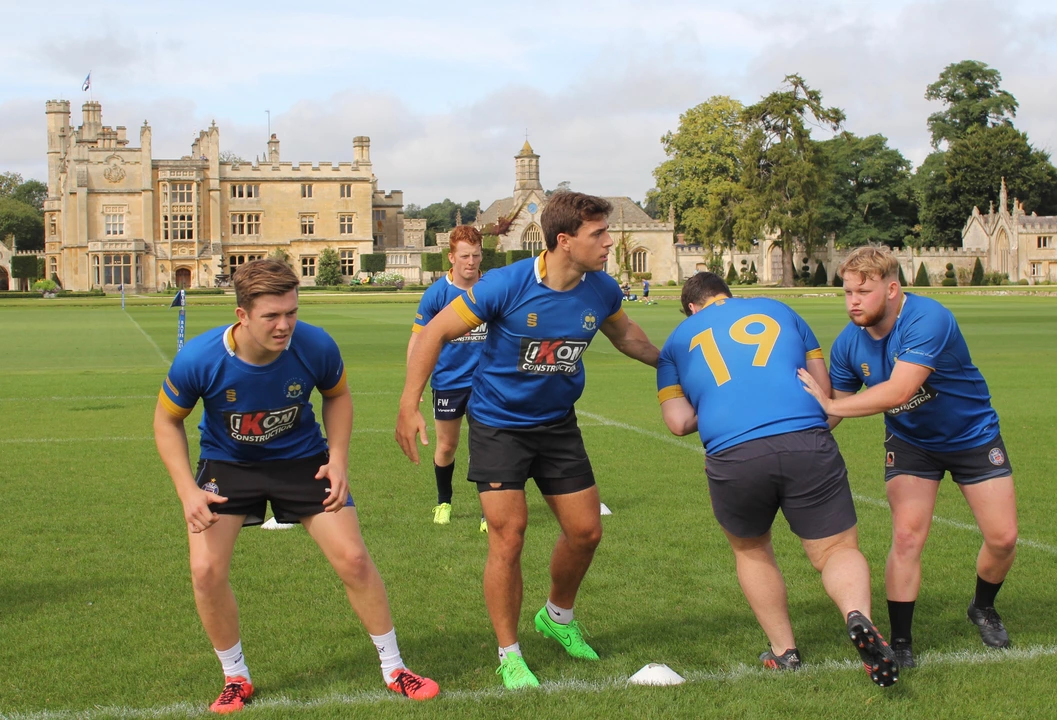Understanding the Demands of Rugby
Rugby is a physically demanding, high-contact sport that requires a combination of strength, speed, agility, and endurance. To start training my body for rugby, I need to understand the specific physical demands of the sport and focus on developing the necessary skills and fitness levels to meet those demands. I will begin by researching the positions and typical game situations to identify the areas I need to work on the most.
Once I've identified the key physical requirements for rugby, I will create a training plan that includes a combination of strength training, cardiovascular conditioning, and sports-specific drills. This plan will be designed to both improve my overall fitness and develop the specific skills and abilities needed for success in rugby.
Building a Solid Strength Base
Strength is a critical component of rugby performance, as it allows players to effectively tackle opponents, maintain possession of the ball, and generate power in their movements. To build a solid strength base, I will incorporate a variety of compound exercises into my training routine, such as squats, deadlifts, bench presses, and lunges. These exercises target multiple muscle groups and help to develop functional strength that translates well to the rugby field.
Additionally, I will focus on exercises that target the muscles most utilized in rugby, such as the hamstrings, glutes, quads, and upper back. By building a strong foundation, I will be better prepared for the intense physical demands of rugby and less prone to injury.
Developing Speed and Agility
Speed and agility are crucial for rugby players, as they allow them to evade opponents, change direction quickly, and cover the field efficiently. To develop these attributes, I will incorporate a variety of speed and agility drills into my training routine. Some examples of effective drills include shuttle runs, cone drills, ladder drills, and sprint intervals.
By consistently working on speed and agility training, I will become a more dynamic rugby player, able to react quickly to changing game situations and create opportunities for my team. This will make me a valuable asset on the field, and help my team succeed.
Improving Cardiovascular Endurance
With rugby matches typically lasting 80 minutes, maintaining a high level of cardiovascular endurance is essential for success. To improve my cardiovascular fitness, I will include endurance-based training in my routine, such as long-distance running, cycling, or swimming. This will help to build my stamina and ensure that I can maintain a high level of performance throughout the entire match.
Additionally, incorporating high-intensity interval training (HIIT) into my workouts will help to improve my cardiovascular endurance by pushing my heart rate to its maximum capacity for short bursts, followed by periods of rest. This type of training is particularly beneficial for rugby players, as it mimics the stop-and-start nature of the sport.
Mastering Rugby-Specific Skills
While physical fitness is a critical aspect of rugby performance, it's also essential to develop the specific skills required for the sport. To become a well-rounded rugby player, I will practice essential skills such as passing, catching, kicking, tackling, and rucking. By dedicating time to practicing these skills regularly, I will become more confident in my abilities and more effective on the field.
Training with a team or participating in rugby clinics and camps is a great way to enhance my skills and learn from experienced coaches and players. This will also provide opportunities to apply my skills in game-like situations, helping me to become a more adaptable and versatile rugby player.
Recovery and Injury Prevention
Finally, it's important to prioritize recovery and injury prevention to ensure that my body can handle the demands of rugby training and competition. This includes incorporating rest days into my training schedule, as well as engaging in regular stretching and mobility exercises to improve flexibility and range of motion.
Additionally, focusing on proper nutrition and hydration will help to fuel my body for optimal performance and recovery. By taking steps to prevent injury and promote recovery, I will be better equipped to handle the physical demands of rugby and enjoy a long, successful playing career.

